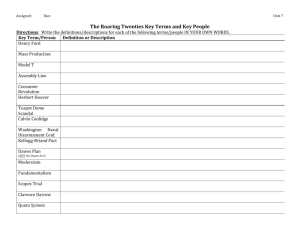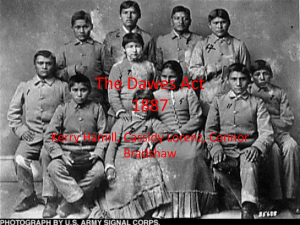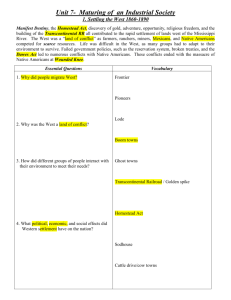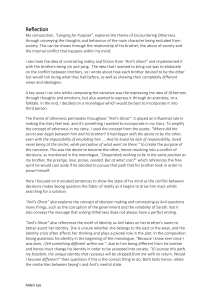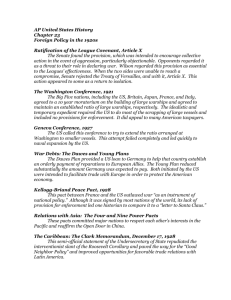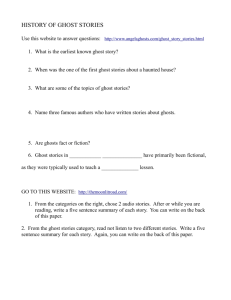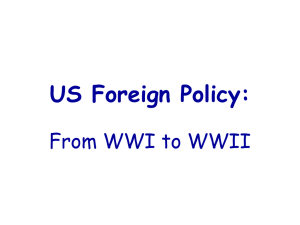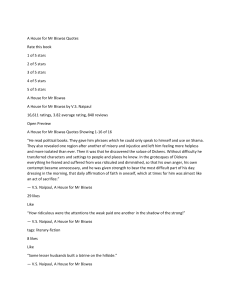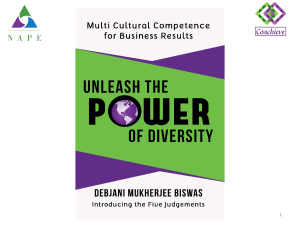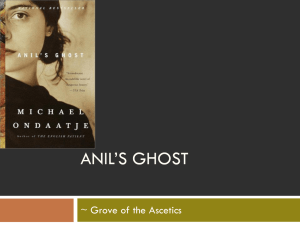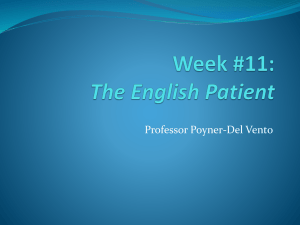Human Rights in South Asian Migration and Diaspora
advertisement
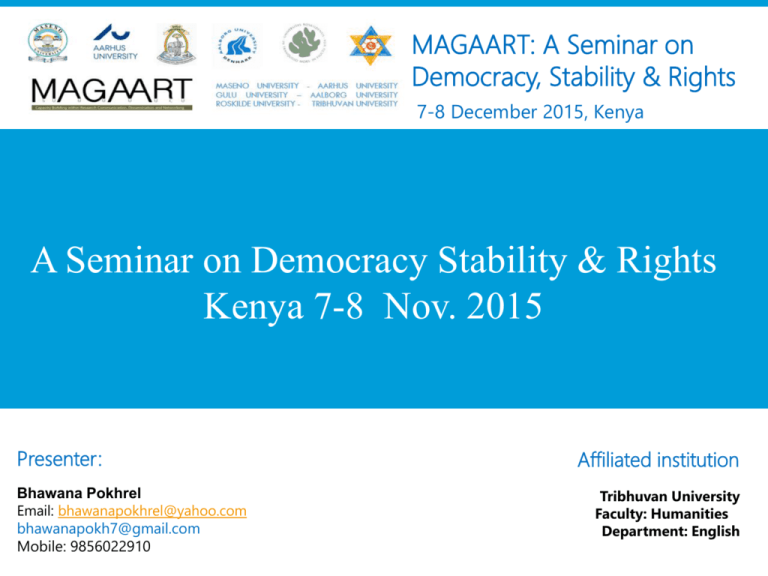
MAGAART: A Seminar on Democracy, Stability & Rights 7-8 December 2015, Kenya A Seminar on Democracy Stability & Rights Kenya 7-8 Nov. 2015 Presenter: Bhawana Pokhrel Email: bhawanapokhrel@yahoo.com bhawanapokh7@gmail.com Mobile: 9856022910 Affiliated institution Tribhuvan University Faculty: Humanities Department: English We are criminals in the eyes of the earth, not only for having committed crimes, but because we know that crimes have been committed.(50) Michael Ondaatje, Anil’s Ghost (2003) Home and Human Rights in South Asian Migration and Diaspora Literary Discourse South Asian Migration and Diaspora Literary Texts Diary of the Desert (2011)- Devendra Bhattrai Atlantic Street (2008) - Rajab Turtle Nest (2003) - Chandani Lukege Anil’s Ghost (2000) - Michael Ondaatje A House for Mr Biswas (1961) - V.S Naipaul Discoursing Human Rights Through Literature Articulation of the Inarticulate… Human rights and literature are intertwined as interdisciplinary studies (Schaffer & Smith 2). [Ref: Article number 19 and 29.] The UDHR 1948 recognizes the ‘rights of individuals…to challenge unjust state law or oppressive customary practice” (Schaffer and Smith 3). Individuals have already initiated this process: 1. By telling their stories to human rights advocates. 2. By inscribing the issues in the literary works. Depiction of HR Issues in Novels… “Novels represent violence; they do not stop it, not directly at least. In representing violence, they externalize, distance, metaphorize, and mediate it” ( Khor, 174). Khor, Lena. Human Rights Discourse in a Global Network: Books Beyond Borders, 2013. Textual Extract/s: ‘He was frightened’, Savi said. ‘To do what?’ ‘Frightened to ask. Teacher permission to leave the room. And when he leave the room he was frightened again. Frightened to use the school WC. [. . . ] Anand Cried. ‘He went back to the class room and Teacher ask him to leave.’ ‘Well just then school was over and everybody walk behind Anand. Everybody was laughing.’ (245) (A House for Mr Biswas 1961) Extract/s from the Texts: Last year, while connecting an electric wire, he fell of a ladder and got his right leg fractured then started his misfortunate days. Neither his leg was cured nor he got the salary of last six months. Then he went to labour court at the advice of the embassy. When he went to the court, the ‘Syriyali’ owner not only beat him badly, but at night, also physically assaulted him to near death (45). (Diary of Desert 2011) Extract/s from the Texts: . . . It was the freshness of the body. It was still someone. Usually the victims of a political killing were found much later. She dipped each of the fingers in a beaker of blue solution so she could check for cuts and abrasions. (9) Anil’s Ghost 2000 Why Are These Implications in Literature? What difference, if any, can literature make through its intervention in the realm of human rights (especially when the cases are universal as depicted in South Asian Migration and diasporta texts/settings)? Double Bind? Or a Debate?! In giving voice to suffering we can sometime moderate it, even aestheticize. “When it is transfigured, something of its horror is removed. This alone does an injustice to the victim.” Indeed, giving voice can also be the matter of taking voice. (Intd.8) Dawes , James. That the World May Know (2007). Telling the Stories OR Staying Silent in Respect?! What are the consequences of respectful silence? There are so many ways to hurt others when trying to speak for them, so many and so unexpected. But is doing nothing worse than risking something? (Dawes, 9) Impotence to Importance of Story Telling… Much of the work on storytelling and human rights, has focused on the impotence of representation. However, one of the most important premises of contemporary human rights work is that effective dissemination of information can change the world. [ . . .] (9-10) Dawes, James. “What Difference Does Storytelling Make?” (2007) Hope…Solidarity… Countering all of these fears is the hope (recognizable sometimes only as the shadow of hope) that literature can, by expressing something true, participate in- or at the very least, act in solidarity with – the work of human rights . (Dawes , 218) Roles that Academia, Social Sciences and Literature Can Play for the Promotion of Human Rights: The academic disciplines ought to work together not only to diagnose problems, but also to improve the human condition [ . . . ]. This objective can also be achieved by gearing academic work toward the realization of human rights in the real world. (xvii) Frezzo, Mark. The Sociology of Human Rights (2015) References: Bal, Mieke. Travelling Concepts in the Humanities. University of Toronto Press: Toronto, 1993. Print Bhattarai, Devendra. The Diary of the Desert. Ratna Pustak Bhandar: Kathmandu, 2010. Dawes, James. That the World May Know: Bearing Witness to Atrocity. Cambridge: Harvard Uni Press, macquillan, martin. ed. The narrative reader.London: Routlege, 2000. Goldberg Elizabeth Swanson and Alexandra Schultheis Moor. Eds. Theoretical Perspectives on Human Rights and Literature. London/NY: Routledge, 2007. Print. Freeman, Michael. Human Rights:An Interdisciplinary Approach. 2nd ed.Cambridge: Ploity Press, 2011. Print. Frezzo, Mark. The Sociology of Human Rights. Cambridge: Polity Press, 2015. Print Ishay, Micheine R. The History of Human Rights: From Ancient Times to the Globalization Era. Berkley: U of California P, 2004. Naipaul, V.S. A House for Mr Biswas. London: Picador, 2003. References: Ondaatje, Michael . Anil’s Ghost . London: Bloomsbury, 2000. Peerenboom, Randall, Carole J. Peterson and Albert H.Y. Chen. Eds. Human Rights In Asia. Abingdon/London: Routledge, 2006. Peters, Julia Stone. “ Literature, the Rights of Man, and Narratives of Atrocity: Historical Backgrounds to the Culture of Testimony”. The Yale Journal of Law and Humanities. l7 :2 (201)3. Web. 28 Feb 2015. Rajab. Atlantic Street. Kathmandu: Bibek Sirjanshil Prakashan, 2065. Print Scahffer, Kay and Sidonie Smith. Human Rights and Narrated Lives: The Ethics of Recognition. New York: Palgrave Macmillian, 2004. Print. Slaughter, Joseph R. Human Rights, Inc. The World Novel, Narrative Form and International Law. New York: Fordham University Press, 2007. Thank you ! For more resources on MAGAART Data Analysis Workshop Series, please login to MSU eLearning portal. This presentation has been uploaded in the MSU eLearning portal
